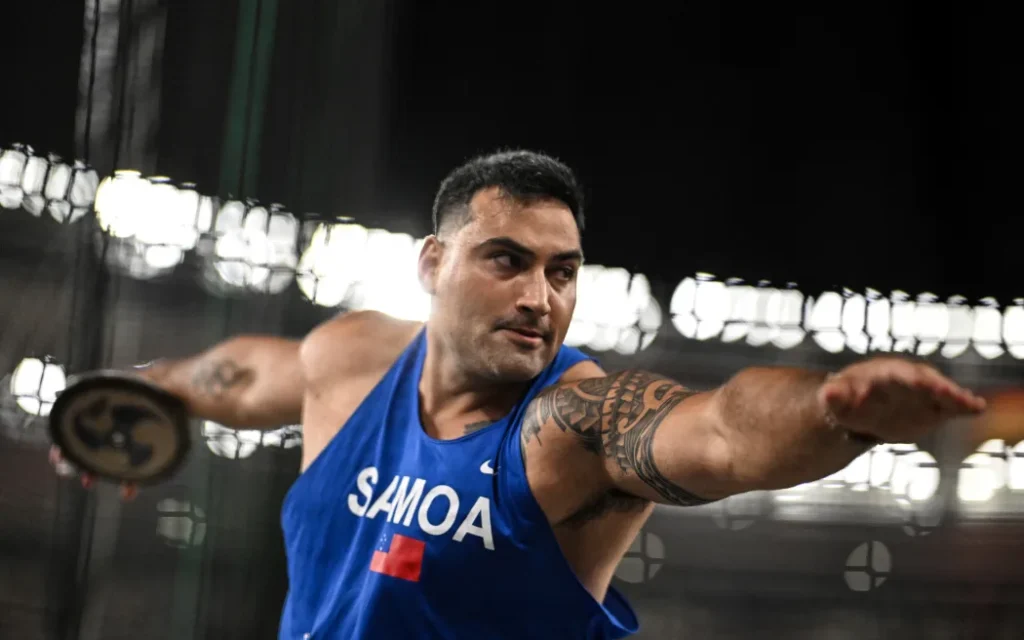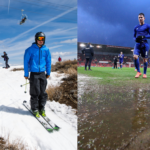
Athletics leaders from Oceania have warned “we are actually talking two different languages” in terms of competiing on the global stage while dealing with the climate crisis.
Several Pacific nations are competing at the World Athletics Championships being held in Budapest, Hungary.
Rising sea levels in the Pacific region have put the future of several nations at risk, and World Athletics President Sebastian Coe has acknowledged that some IAAF members “probably will not be in existence in the next 20 years”.
World Athletics head of sustainability Bob Ramsak chaired a panel discussion with officials from the Cook Islands, Kiribati, Samoa, Tuvalu and Vanuatu entitled ‘Sport on the Climate Change Front Lines’.
Tuvalu Athletics Association vice-president Niuone Eliuta outlined the threat faced by his nation with the highest point only around four metres above sea level, while Athletics Cook Islands President Simone Fe’ao said seven of her country’s 15 islands peaked at 15 metres above sea level or less.
Climate change has created difficulties growing crops, changed fishing patterns and led to many young people in the countries migrating to other countries.
It has also impacted the staging of sport in the limited facilities on the islands, leaving venues at risk of flooding.
Eliuta insisted “the future of humanity really depends on what we do today”, while Fe’ao argued “it’s going to take more than just the 20 Oceania nations to make that difference”.
Vanuatu Association of Sports and National Olympic Committee President Antoine Boudier shared concerns about the failure of countries around the world to fulfil pledges on tackling climate change.
Boudier said sport needed to find a balance between the standard of its events and protecting the environment.
“In our part of the world in Oceania, our leaders are very concerned about it,” he said.
“They know about the target, they want to achieve that target.
“The problem is we’ve got leaders in bigger countries with bigger problems.
“Like any big nation, you’ve got an economy to run and you’ve got industries, and those industries generally develop carbon [emissions] that affect climate change.
“Today when we are talking about a way forward with sports and athletics in general, we’ve got a climate footprint on one hand, and we’re saying we want to save the planet but we want better shoes, better equipment, better running track and fields.
“It doesn’t match.
“We are actually talking two different languages going opposite to each other.”
Boudier said finding that middle ground will make a big change to the planet.
Coe admitted climate change is likely to reschedule major athletics events, including endurance competitions potentially being moved to cooler times of the year.
– Inside the Games




